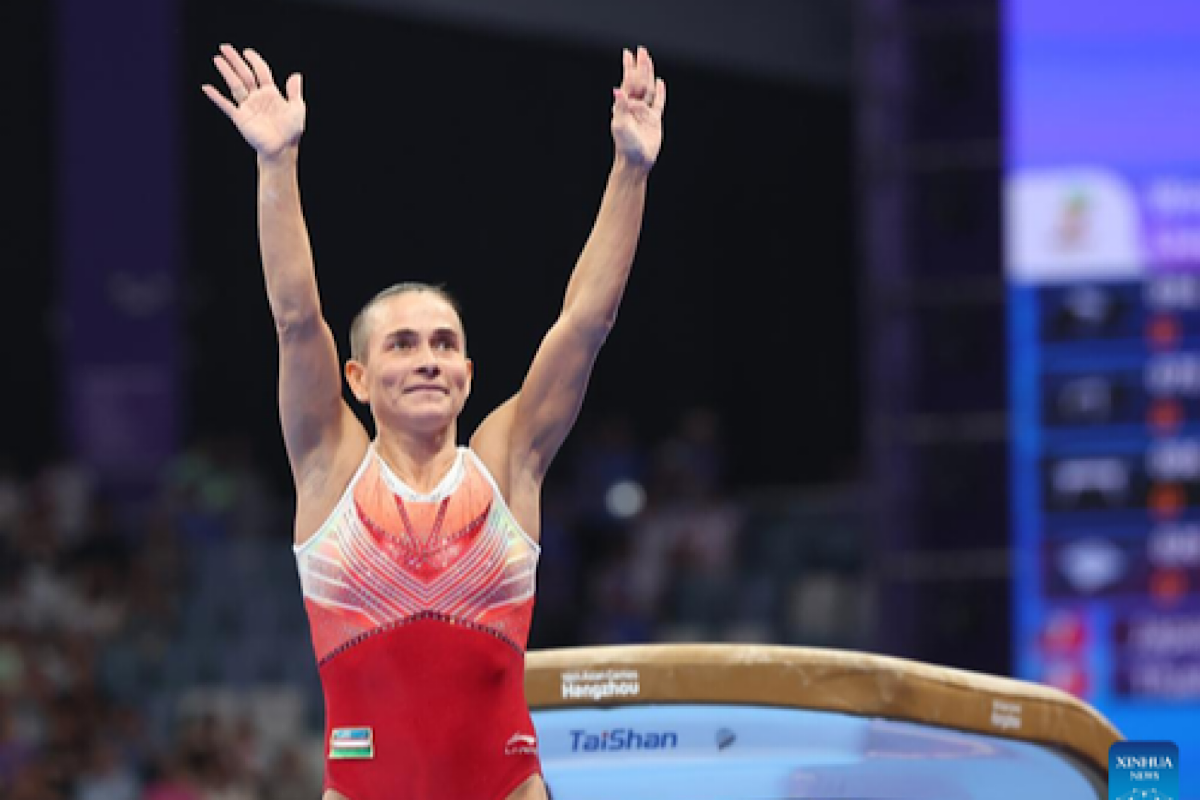Every time Oksana Chusovitina competes in a gymnastics event, she captures the spotlight. The Hangzhou Asian Games proved no exception.
When the 48-year-old Uzbek gymnast participated in the Asiad women’s gymnastics qualification at Huanglong Gymnasium on Monday, thousands of spectators chanted for “Qiu Ma,” which translates to “Mother Chusovitina.” A throng of journalists waited in the mixed zone, hoping for an interview opportunity, reports Xinhua.
Advertisement
“I’m touched by Chusovitina’s story. She tried to save her son and just never gave up,” said Zhang Anqi, a Hangzhou local who attended the event.
“I am lucky to see her here in my home city. She is beautiful both as an athlete and as a mother,” Zhang added.
After completing her vault, Chusovitina blew a kiss to the audience and formed a “heart” gesture with her hands.
“It is the love and support of the people that keep me going and give me the strength to achieve more,” Chusovitina said.
“I am not very satisfied with my performance tonight. Actually, I was a little over-excited,” she added.
Chusovitina has a storied history at the Asian Games, having won eight medals, including two golds in 2002. This year, she’s targeting a medal in the vault. “I will increase the difficulty in the final,” she shared.
Chusovitina’s Olympic journey began in 1992, representing the Unified Team of the former Soviet Union. She later stood for Uzbekistan, transitioned to German citizenship in 2006, and reclaimed her Uzbek citizenship in 2013.
When Chusovitina’s son was diagnosed with leukemia in 2002, she adopted German citizenship to compete at global events for a higher income and better medical treatment. Her heartfelt sentiment, “I dare not grow old until you are well,” has resonated with many.
After her son’s recovery, Chusovitina continued her gymnastics journey out of sheer love for the sport. Though she announced her retirement after the Tokyo Olympics in 2021, she decided to return shortly after.
“The biggest motivation is my desire. I want to perform. I love gymnastics, and this profession brings me great joy. I’m just doing what I love, so why should I stop?” Chusovitina said.









